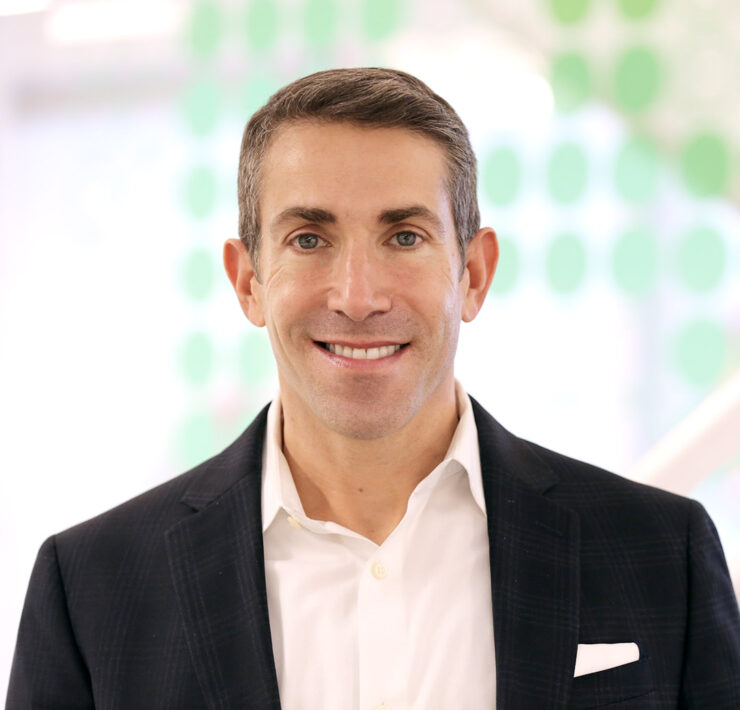
|
Getting your Trinity Audio player ready... |
Josh Lipscomb learned his first leadership lessons from his parents.
“My parents owned a business, and they taught me that you should never ask your employees to do something you’re not willing to do yourself,” Lipscomb explains. “They would come home covered in sweat and dirt every day, just like their employees. And the people they employed respected them for it.”
Lipscomb took his parents’ teachings to heart. Today, as senior vice president of total rewards at Varsity Brands, Lipscomb practices a nonhierarchical form of leadership, empowering his team by listening and connecting with them personally, and also connecting the dots between individual contributions and the mission of the overall organization.
Beyond that, he works to achieve cohesion across the diverse divisions that make up Varsity Brands without ever losing sight of the equally diverse needs of the company’s employees.

Varsity Brands has existed in its current form since 2013, when a private equity firm acquisition brought together three businesses centered around the high school student experience, from academics to athletics. This synergy was enhanced when Bain Capital bought Varsity Brands in 2018. Over the past few years, and with the support of Bain Capital, Lipscomb has focused on aligning those businesses on compensation, benefits, HR systems, and HR operations––an undertaking that has presented its fair share of challenges.
“We put everyone on the same 401(k) and the same medical plans, but we still have two different payroll systems, three different recruiting platforms, and three different benefit administration systems,” Lipscomb says. “Our next step is to bring those systems into line.”
To that end, Varsity Brands is in the process of implementing Workday, a cloud-based enterprise management system. “The introduction of Workday will be transformative for us because our employees and managers will have direct access to our systems. Additionally, HR will be able to work within one system across the enterprise instead of managing multiple systems at once,” Lipscomb elaborates. “We’re hopeful that it’s going to create synergy and free up time for everyone and enable us to focus on more value-additive activities.”
For instance, the consolidation will simplify the transfer of employees from one division to another, opening new doors for career growth within the company. Lipscomb likens such upsides to those of the services Varsity Brands provides to its customers.
“Our mission is to elevate the student experience through sport, spirit, and achievement. We’ve taken that outward mission and turned it back on ourselves.”
Josh Lipscomb
“When we create tools and systems that allow our coaches, sponsors, or school leaders to do their jobs better and more easily, they can focus on the students,” he says. “Our managers are like coaches. If we give them the right tools, they can spend less time dealing with administrative matters and more time developing their employees.”
In both cases, the outcome speaks to what Varsity Brands is as a company. “Our mission is to elevate the student experience through sport, spirit, and achievement. We’ve taken that outward mission and turned it back on ourselves,” Lipscomb says. “Our internal mission is to elevate the employee experience.”
During his time at Varsity Brands, Lipscomb has fully embraced this mission as well as the six values that sustain it: service, passion, integrity, respect, innovation, and transparency (abbreviated as SPIRIT.). He strives to help each of his team members understand the impact of their individual role on the mission’s success and motivate them to put their best foot forward inside and outside the office.
Lipscomb applies a similar philosophy to his benefits responsibilities. “Historically, people have equated well-being with physical wellness. I’m really passionate about the idea of whole-person, or holistic, well-being,” he explains. “You have to create programs and tools that support all aspects of well-being, whether physical, mental, financial, emotional, or social.”
“Our managers are like coaches. If we give them the right tools, they can spend less time dealing with administrative matters and more time developing their employees.”
Josh Lipscomb
Through a partnership with insurance consulting firm Holmes Murphy, Varsity Brands has made significant strides in that direction. Holmes Murphy facilitated an analysis of anonymized employee health data that Lipscomb has since used to rethink employee benefits.
“We saw that a lot of our costs were related to preventable illnesses,” he says. “So we’ve implemented programs to help our employees focus on those areas.”
Specifically, Lipscomb has increased offerings pertaining to musculoskeletal issues, age- and sex-based cancers, and mental health support. In the long run, these offerings should not only keep employees happier and healthier but also save them and the company money.
“We are thrilled to work with Josh and his team to help manage costs and improve the health and well-being of their employees,” says Jim Holder, Vice President of Holmes Murphy.
Still, Lipscomb knows that the organization’s journey toward holistic well-being must be an ongoing effort. “You can have the best programs in the world, but if employees don’t use them, it doesn’t matter,” he emphasizes. “We have to continue to communicate and let our employees know about all of the different benefits available to them.”
As with all his work at Varsity Brands, Lipscomb believes that enhancing benefit options will start a chain reaction that ultimately serves the company’s employees and customers alike. He envisions a version of the organization that mirrors its customer base, and he plans to keep striving to transform that dream into reality.
“You have to create programs and tools that support all aspects of well-being, whether physical, mental, financial, emotional, or social.”
Josh Lipscomb
“We offer a 360-degree support model to our customers; the schools and students we serve. If we want to support them well, we have to understand what they need and who they are, and we can’t do that if we don’t listen, and also have a similar diversity of perspective internally,” Lipscomb says. “Just like our customers, our employees have different needs as well and our aspiration is to create inclusive experiences for our employees via benefits and career opportunities that will allow us to ultimately deliver better offerings to our customers in the future.”
As they like to say at Varsity Brands, that’s a “win-win.”







